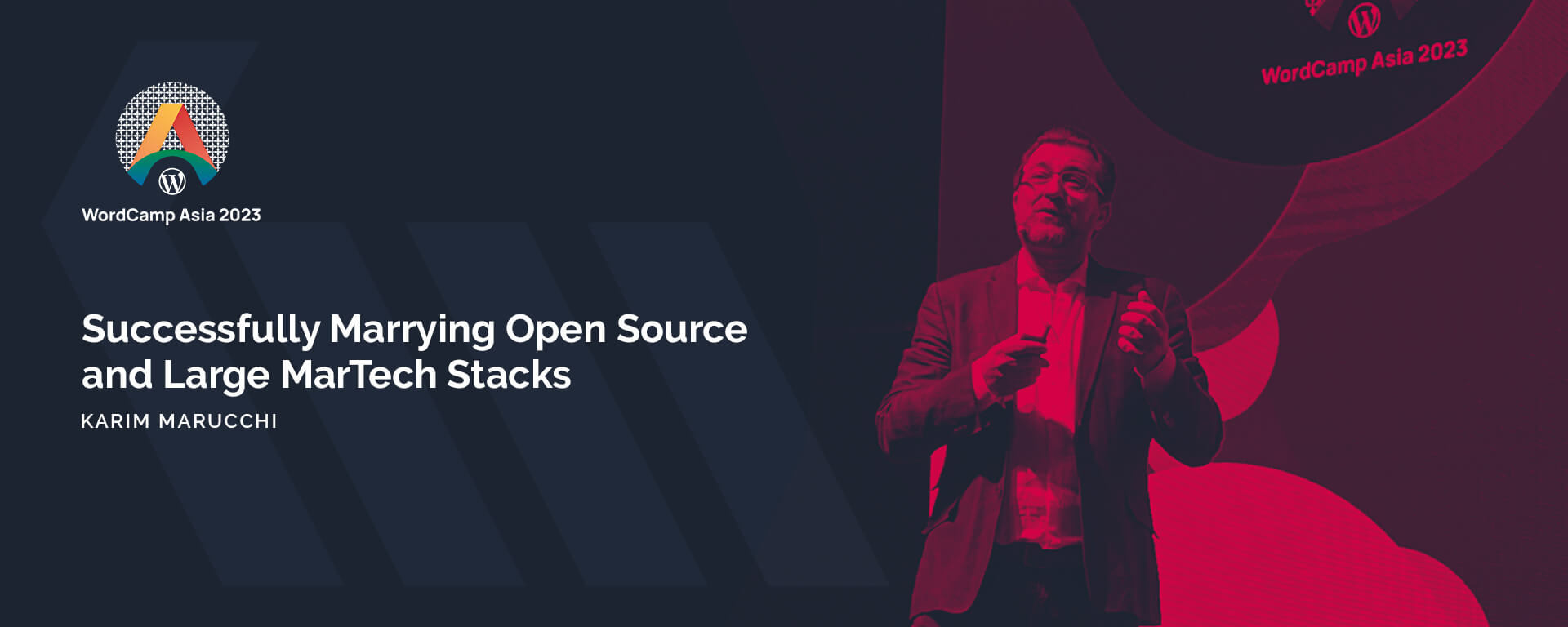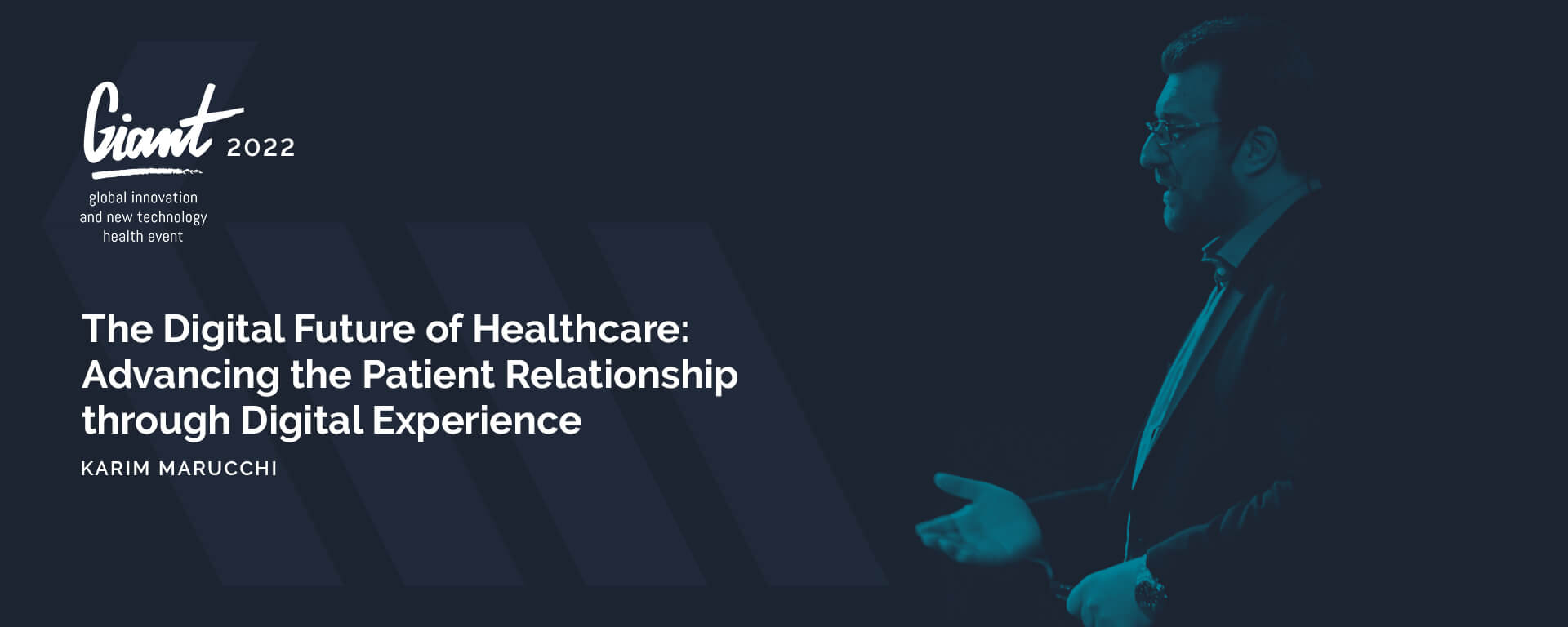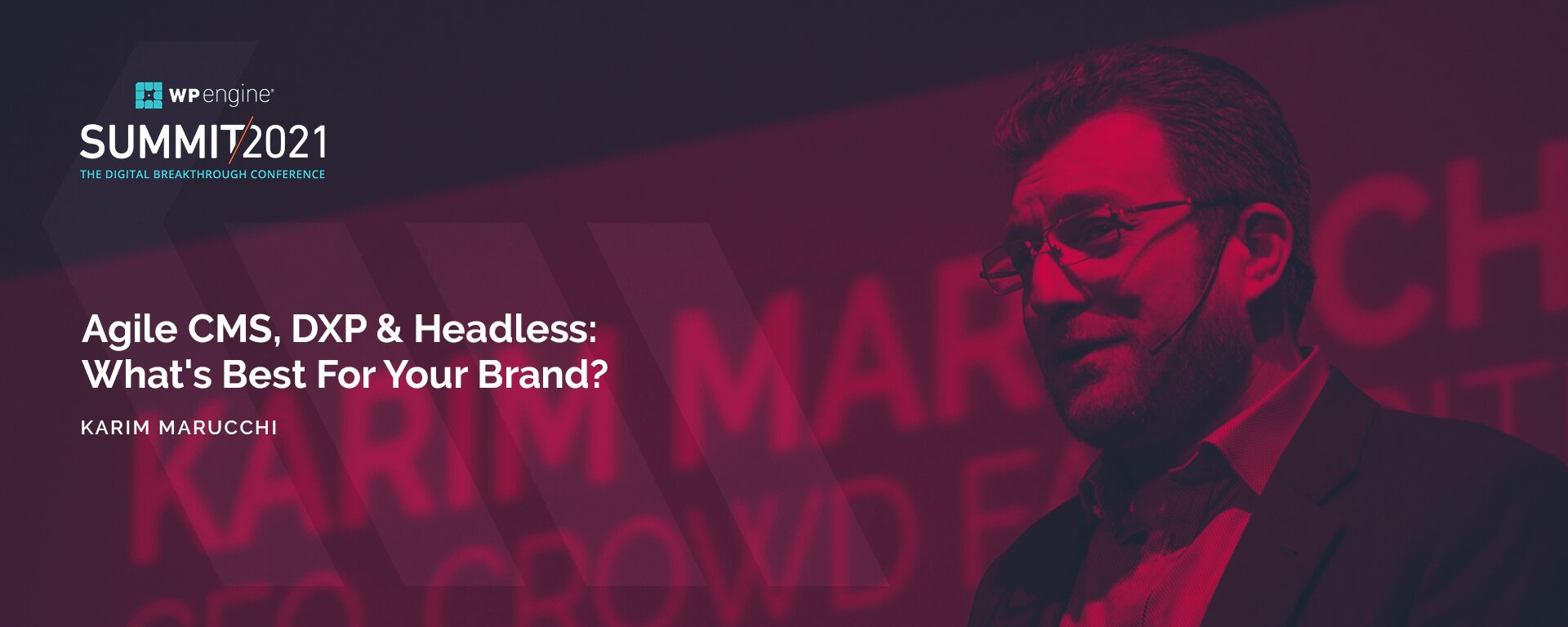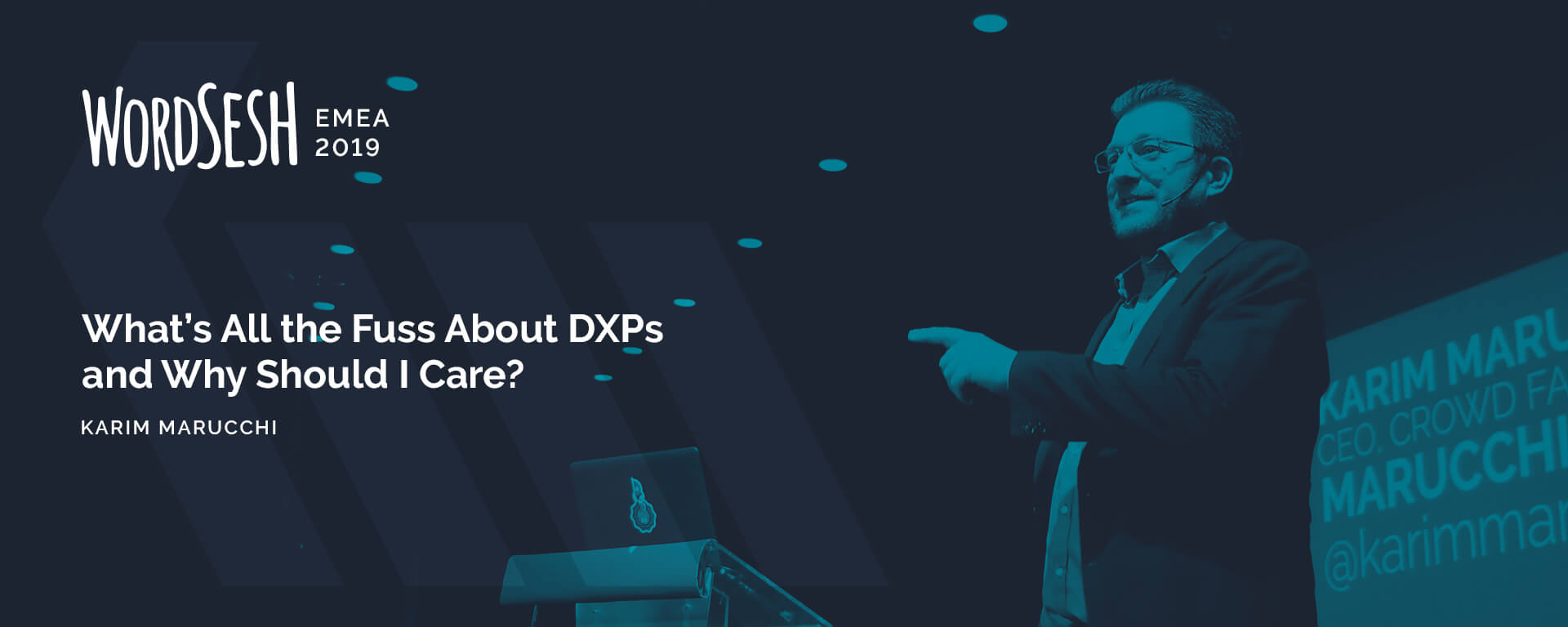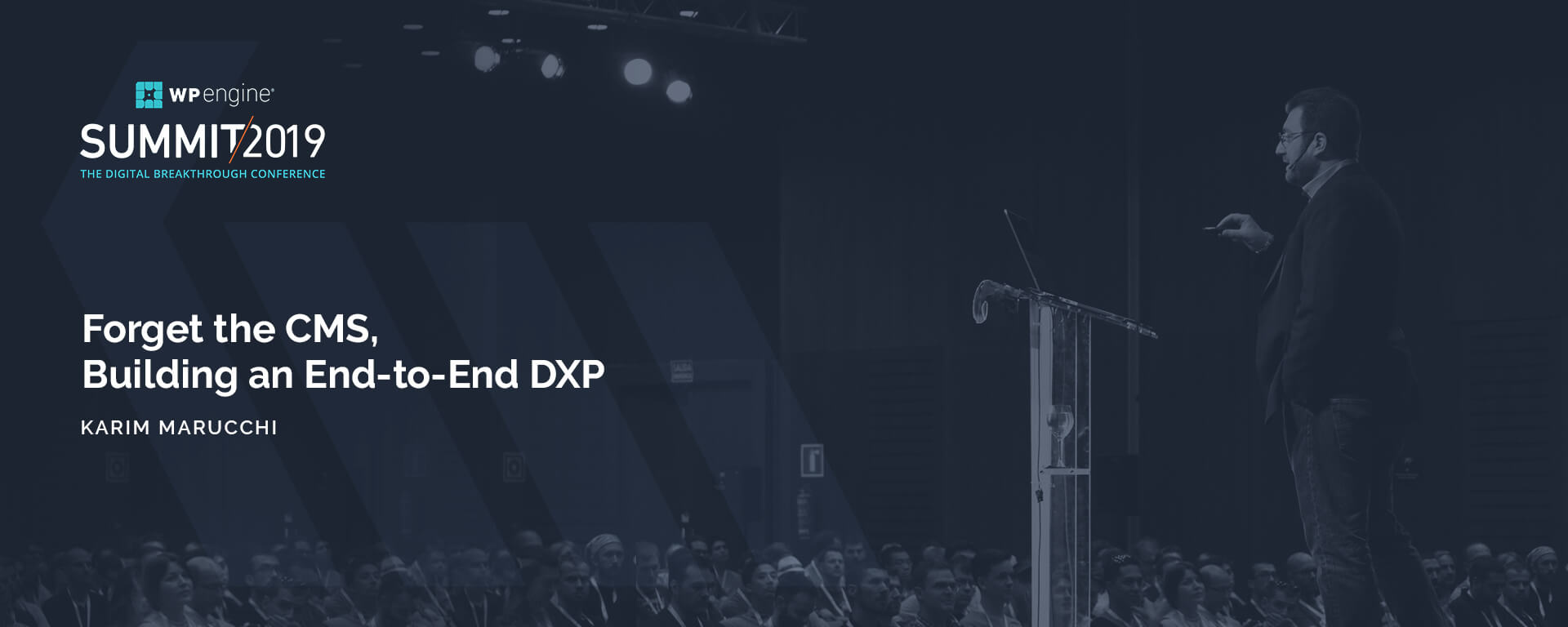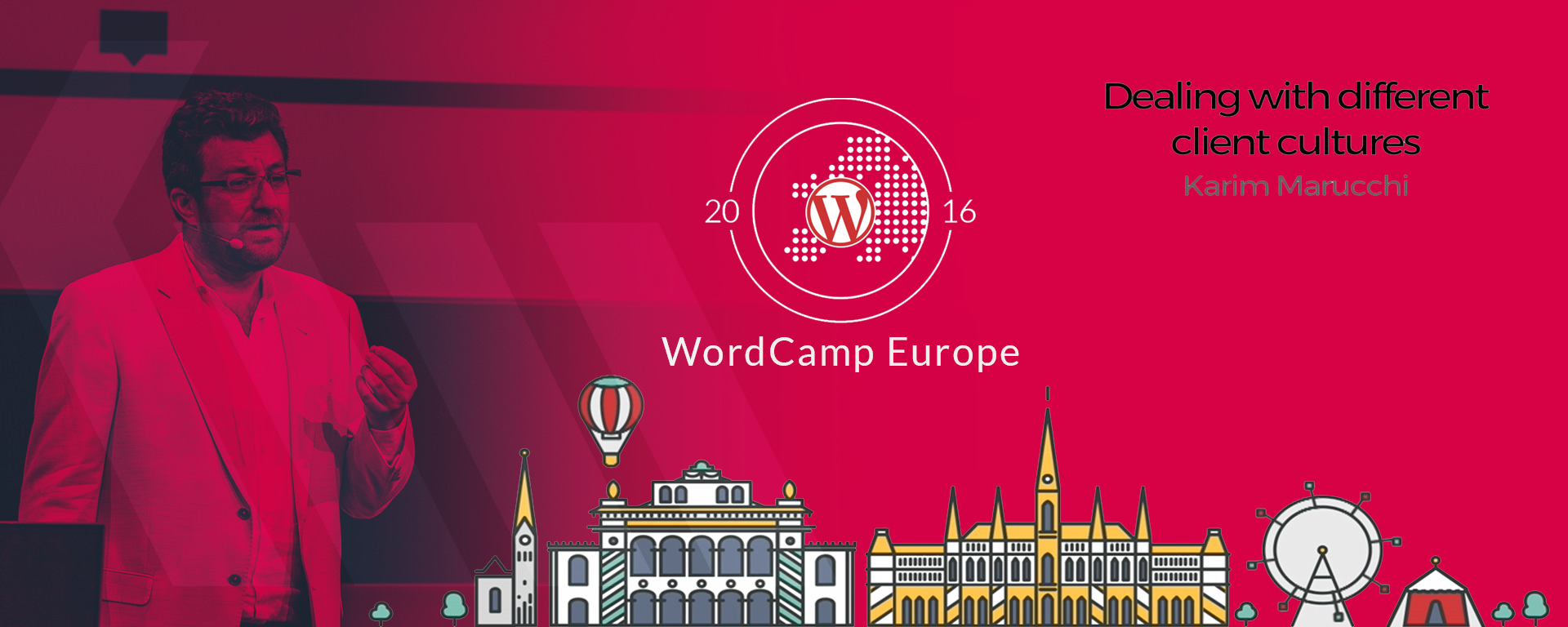Successfully Marrying Open Source and Large MarTech Stacks
From Workflows to personalization the importance of Open Source for the ever changing world of Marketing to meet higher client expectations.
The Digital Future of Healthcare: Advancing the Patient Relationship through Digital Experience Technology
Clinicians are being told to deliver 21st century care with a focus on customer experience and customer interaction strategies.
Agile CMS, DXP & Headless: What’s Best For Your Brand?
In the last few years, we've started talking about a customer's 360 degree experience...
What’s All The Fuss About DXPs And Why Should I Care?
What's a DXP: It's an opportunity for innovation to integrate.
Forget the CMS, Building an End-to-End DXP
Exploring a true framework solution of a DXP at WP Engine's Digital Breakthrough Conference.
Dealing with Different Client Cultures
Sharing some tips I have learned in my over 22 years of client management, specifically when dealing with different client cultures.
